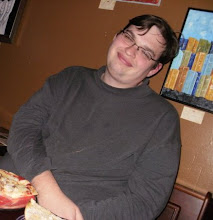
I was reading an article online about student loan debt and the pitfalls of private loans. They quoted one recent graduate who was complaining about debt loan post-college. She said something to the effect of: "Well, I wish I had at least got a more practical degree, instead of a English degree."
I hear comments like this more and more, especially with our recent recession. Frankly, comments like that always make my blood boil. I have a BA in English and a Master of Liberal Studies, two liberal arts degrees, neither which on the surface seem "practical." I have also decided to make education my career, and often talk to students about classes, majors, etc.
There's one thing I wish every college in the US would say to their students during their orientation: College is not on-the-job-training!
Many students seem to feel that coming to college is some sort of training, where the student gets manufactured and molded and he/she pops out on the other end as a cog, only to get placed into a perfect machine i.e. the job he/she has been training for for four years. Unfortunately, business schools often perpetuate that myth.
Why on earth would you want to be trained to be a cog, to fulfill one function in society? What happens in 5 or 10 years when you burn out? Or the job you have been doing is no longer viable? Look at the American car industry. Many of those people losing their jobs at GM or Chevrolet have parents who worked for 40 years and retired at those same companies. Times change quickly.
Students who do study the liberal arts show that they can change and adapt. Because as a student you are being exposed to a wide breadth of subjects, it shows that you are flexible. For instance, with a English degree, there's a myriad of things I could have done and may still do: teacher, writer, lawyer, journalist and editor are the most direct professions. If I got a degree in accounting, I would be qualified to be an accountant.
Don't get me wrong: a student who just graduated with an English degree and nothing else can't just show up with no experience and expect to get the 50K job, especially not lately. College is a goods step to gainful employment but it should not be the only step. You still have to do the internship, take the education classes, or get into law school. Any degree, even a business degree, is impractical without credentials and experience backing it. And unlike a business degree, if I wanted to leave education and become a technical writer or anything else, I could easily make my skills and degree translate into a different career, as long as I also got some experience in either part time work or as an intern.
With the deep economic downturn, it's not as easy to find a job as an accountant or an IT specialist as it was just three years ago. Many times, recent graduates will find they have no job opportunities after spending four years studying something they disliked.
I will agree, colleges need to emphasize these points more, especially about finding a major and a career, and that the two are not interchangeable. However, I also think students need to be more realistic in their goals and not expect that to be treated like golden children just because they have a college degree. As I always joked, on Graduation Day you're a graduate, but the next day you're just unemployed.



